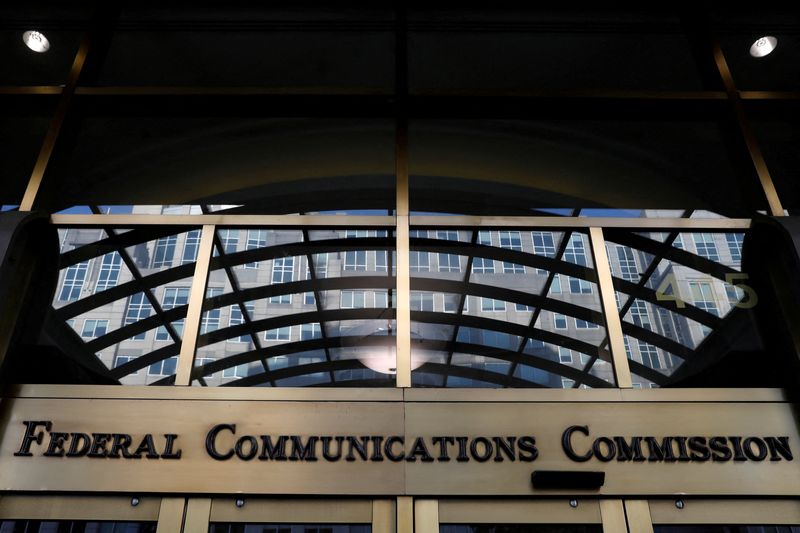By David Shepardson
WASHINGTON (Reuters) -The U.S. 6th Circuit Court of Appeals will hear a series of industry legal challenges seeking to block the Biden administration's reinstatement of landmark net neutrality rules set to take effect on July 22, according to an order Thursday.
The Federal Communications Commission voted in April along party lines to reassume regulatory oversight of broadband internet and reinstate open internet rules adopted in 2015 that were rescinded under former President Donald Trump.
The Cincinnati-based 6th Circuit was randomly selected after legal challenges were filed in seven circuit courts.
FCC Chair Jessica Rosenworcel said she was confident in the commission's legal authority. "I have full confidence in what this agency has developed with respect to net neutrality, and I believe our work will be upheld by the courts," she said Thursday.
The rules will bar internet service providers from blocking or slowing down traffic to certain websites, or engaging in paid prioritization of lawful content, as well as give the FCC new tools to crack down on Chinese telecom companies and the ability to monitor internet service outages.
Industry groups representing AT&T (NYSE:T), Comcast (NASDAQ:CMCSA) and Verizon (NYSE:VZ) asked the FCC to halt the order from taking effect by Friday so they can seek judicial review or if needed a court-issued order temporarily blocking the new rules. Rosenworcel said the FCC would respond to the petition.
Reinstating net neutrality has been a priority for President Joe Biden, who signed a July 2021 executive order encouraging the FCC to reinstate the rules adopted in 2015 under Democratic President Barack Obama.
The industry groups said the FCC "has once again claimed all-encompassing authority to regulate how Americans access the internet -- this time, adopting even more invasive rules than it did in 2015."

Under Trump, the FCC had argued net neutrality rules were unnecessary, blocked innovation and resulted in a decline in network investment by internet service providers, a contention disputed by Democrats.
Despite the 2017 decision to withdraw the requirement at the federal level, a dozen states now have net neutrality laws or regulations in place. Industry groups abandoned legal challenges to those state requirements in May 2022.